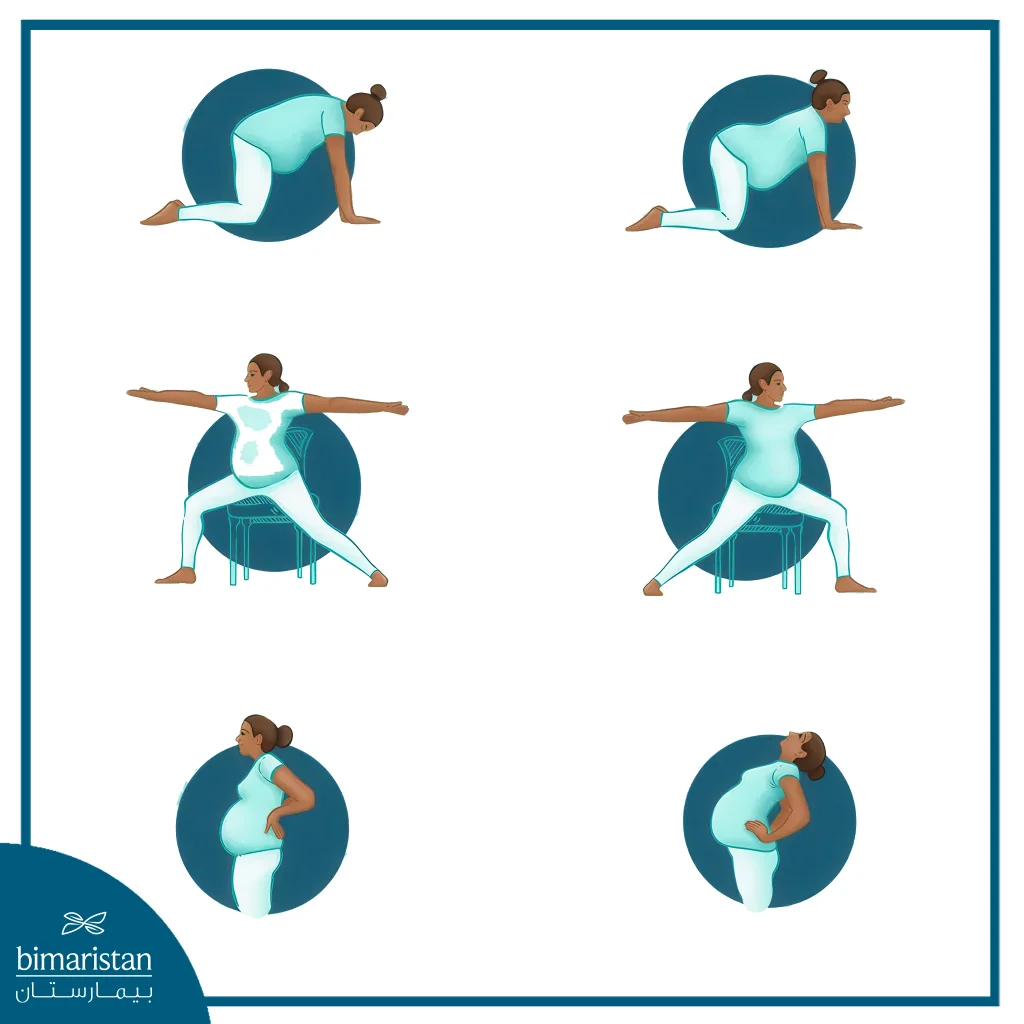Migraines are a common issue that women may face during pregnancy, especially in the first trimester, as hormonal changes and physical fluctuations trigger painful episodes. Despite the severity of headaches and their impact on daily life, their management is limited due to concerns about the use of medications and their effect on the fetus. In this context, this article discusses migraine treatment during pregnancy, focusing on safe and effective methods that balance pain relief with maintaining a healthy pregnancy.
Are migraines common during pregnancy?
Migraine headaches are common in women’s fertile years and may first appear during pregnancy, especially in some women in the form of attacks with neurological symptoms known as aura, such as visual disturbances or tingling. Although some women experience an increase in headache severity in the early weeks, most women notice an improvement as the pregnancy progresses. Studies show that up to 46.8% of women feel better in the first trimester, rising to 83% in the second trimester, 87.2% in the third trimester, and up to 78.7% may experience complete improvement by the end of pregnancy. However, improvement is less common in those with migraine with aura.
These changes are often related to hormonal fluctuations, especially in estrogen and progesterone levels, as well as factors such as stress, sleep disturbance, nausea, and dehydration. It is also important to distinguish between migraines and tension headaches, as the latter are more common in pregnancy, often less severe, and respond better to non-pharmacological treatment. Tension headaches are characterized by a feeling of pressure on both sides of the head without nausea or sensitivity to light, which helps differentiate them from migraines.
Causes of migraines during pregnancy
There are many causes and triggers for migraines in pregnancy, including the following:
- Genetic factors: Migraines tend to run in families, suggesting a genetic component.
- Hormonal fluctuations: Especially changing estrogen levels during pregnancy, which is one of the most important triggers.
- Increased blood volume: Blood volume increases in the first trimester, expanding blood vessels in the brain and putting pressure on sensitive nerves.
- Lack of sleep and stress: Lack of sleep and stress are factors that can increase headaches.
- Dehydration: Lack of fluids can trigger headaches, so it’s important to drink adequate amounts of water.
- External stimuli: Bright lights, strong odors, and certain foods (chocolate and aged cheese).
- Other factors: Low blood sugar, sudden caffeine withdrawal, sinus issues, or eye fatigue.
Migraine attacks during pregnancy are caused by changes in nerve pathways, chemicals, and blood flow in the brain, which irritate and dilate blood vessels and stimulate the pain response. The hormone estrogen and the neurotransmitter serotonin play an important role in this process.
When a headache is dangerous during pregnancy
Although migraine attacks during pregnancy are not considered dangerous in most cases, and do not directly harm the mother or the fetus, some studies indicate that some women with migraines may have an increased risk of complications such as preeclampsia, premature birth, or low birth weight. Therefore, it is important to follow up with your doctor throughout your pregnancy, and medical advice should be sought immediately if there are symptoms that cause concern, such as:
- A sudden, intense headache that peaks in less than a minute
- A change in your usual headache pattern or an unexplained increase in severity
- New or prolonged neurological symptoms, such as unusual aura, vision, and movement disorders
- loss of consciousness
- Severe nausea and vomiting with a headache
Such signs may indicate more serious causes and require careful evaluation by a medical professional or an urgent referral for examination.
Safe ways for migraine treatment during pregnancy
If symptoms are mild to moderate, pregnant women can benefit from non-pharmaceutical options and simple lifestyle modifications to relieve migraine attacks and reduce their frequency.
Non-pharmaceutical treatment
It is often possible to relieve migraine attacks during pregnancy using safe, non-pharmaceutical methods. Lying down in a dark, quiet room with cold compresses applied to the forehead or back of the neck can help reduce the severity of headaches. Practicing relaxation techniques such as deep breathing, meditation, or pregnancy-specific yoga may also play an effective role in relieving symptoms. Some women find relief in acupuncture or massage therapy, provided it is supervised by professionals experienced in working with pregnant women. These methods remain one of the main options for migraine treatment during pregnancy in a safe and natural way.

Life adjustments
Adopting a healthy lifestyle is one of the most important ways to prevent migraines during pregnancy. Maintaining a regular sleep schedule, avoiding late nights, and eating balanced meals on a regular schedule are key recommendations to avoid low blood sugar, which can trigger headaches. It is also advisable to drink enough water daily and avoid common triggers such as strong odors, bright lights, and stress.
Relatively safe medications for migraine treatment during pregnancy
Paracetamol is the first and safest option for migraine treatment during pregnancy, used at the lowest possible dose and for a short duration. In some cases, non-steroidal anti-inflammatory drugs (NSAIDs) such as ibuprofen may be used, but only during the second trimester and for a limited time, avoiding their use in the first and last trimester due to potential risks to the fetus.
For triptans, such as sumatriptan, recent studies have shown that their use under a doctor’s supervision may be safe during pregnancy and is not associated with an increased risk of birth defects or pregnancy complications. Some anti-nausea medications, such as metoclopramide, which help relieve nausea and vomiting symptoms associated with migraine attacks, may be prescribed with limited use.
Certain medications such as aspirin and opioids (codeine) should not be used during pregnancy, except in rare cases and under close medical supervision, due to the potential risks to the mother and fetus. It is always necessary to consult a doctor before taking any medication as part of the treatment of headaches during pregnancy, to ensure the most appropriate choice according to the mother’s health condition and the progression of the pregnancy
Natural remedies and supplements
Many women turn to natural remedies for migraine treatment during pregnancy, especially to avoid medications. Some helpful remedies include: Drinking enough water, getting regular sleep, avoiding triggers such as foods or bright light, and applying cold compresses to the head or neck. Relaxation exercises and deep breathing can also help relieve tension that may cause headaches.
Some supplements, such as magnesium, are safe in moderate doses, and limited caffeine (one cup of coffee a day) may help relieve pain. Vitamin B2 is sometimes used to prevent headaches, but it is best to consult with your doctor before taking it during pregnancy. It is important to consult with your doctor before taking any supplement, even those considered natural, to determine the proper dosage and ensure it does not interfere with your pregnancy or the mother’s health condition.
When should I see a doctor?
Although headaches during pregnancy are common, there are cases that require immediate medical intervention. If the headaches are severe and persistent and do not respond to home remedies, or are accompanied by symptoms such as changes in vision, sudden swelling of the face or hands, pain in the upper abdomen, or high blood pressure, this could indicate serious conditions such as preeclampsia.
It is also recommended to see a doctor if your migraine starts for the first time during pregnancy, if the pattern or severity is different than usual, or if it is accompanied by impaired movement or speech. These symptoms may be a sign of neurological or vascular disorders that need careful evaluation and may require specialized migraine treatment during pregnancy.
In conclusion, migraine during pregnancy is an annoying challenge that may affect the quality of life of a pregnant woman, but it is often manageable through lifestyle modifications, safe treatments, and avoiding triggers. It is important not to ignore the symptoms and consult a doctor when needed, to ensure the safety of the mother and the fetus, and remember that migraine treatment during pregnancy is not only about relieving the pain, but also about understanding the causes and acting in a timely manner.
Sources:
- Goadsby, P. J., Lipton, R. B., & Ferrari, M. D. (2002). Migraine-current understanding and treatment. The New England Journal of Medicine, 346(4), 257-270.
- The Migraine Trust. (n.d.). Migraine in pregnancy.
